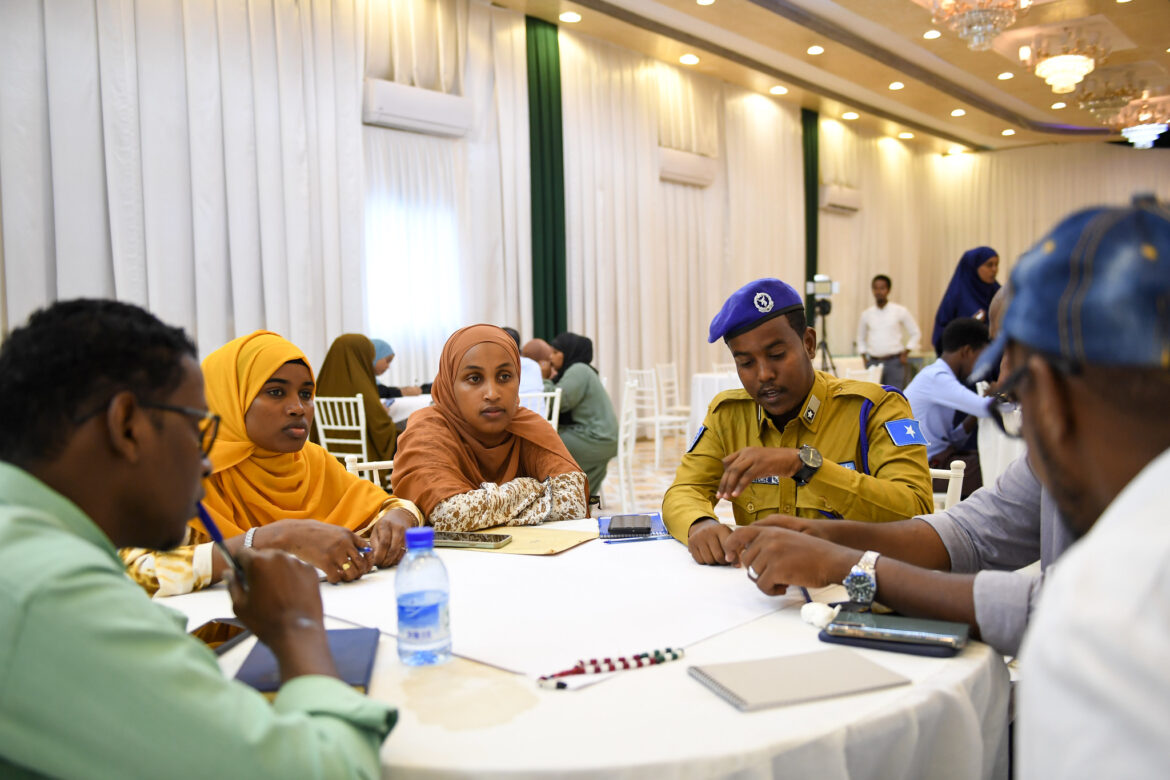Mogadishu–Twenty five Somali journalists and officers of the Somali Police Force (SPF) have completed a two day training workshop in Mogadishu to advance media freedoms and improve on the safety and security of journalists in the discharge of their duties.
Facilitated by the Federation of Somali Journalists (FESOJ) and supported by the African Union Transition Mission in Somalia (ATMIS), the training explored ways to improve and strengthen the relationship between the police and journalists.
“We agreed that we should resolve any misunderstanding between the police and the media and also brainstormed on how to advance freedom of expression, safety of journalists and public safety. We agreed there is a need for journalists and the police to work together to resolve any emerging issues between us,” said FESOJ Secretary General, Farah Omar.
Topics covered during the training included applicable provisions of the African Charter on Human and Peoples’ Rights, Article 19 of the Universal Declaration of Human Rights, safety guide for journalists, access to information laws and lessons from the International Covenant on Civil and Political Rights (ICCPR).
Lt. Salman Abdullahi of the SPF, said an important lesson was the role police can play in advancing media freedom for the benefit of the public.
“I have come to learn from the training that the media and the police can peacefully co-exist and that we need to work together for the good of the public,” Lt. Abdullahi said, adding that if the police and the media do not cooperate it would be difficult for the public to get accurate and credible news.
Sahra Ahmed, a 21-year old journalist said the training was vital to creating rapport between the media and police and that the media is expected to benefit from such improved relations.
“Such trainings should be held regularly as bringing the media and the police together fosters dialogue and helps improve access for the media. Media safety and security trainings should be extended to all police officers, even those manning checkpoints and patrolling the streets, so that they will grant safe passage to journalists whenever they are going to cover news events,” Sahra said.



